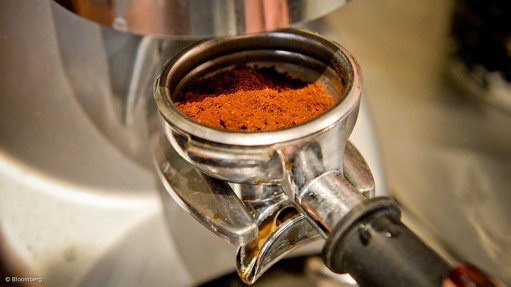
Photo by: Bloomberg
The first Starbucks store in South Africa opened its doors to the public on Thursday.
The store, in Rosebank, Gauteng, would offer a range of Starbucks beverages and food, including Starbucks’ ethically sourced 100% Arabica coffee. However, South African customer tastes were also taken into consideration when the menu was developed, with local products like Rooibos tea to be served.
“This is a milestone for Starbucks and we are delighted to have arrived in South Africa. With Taste Holdings, we will deliver the special Starbucks experience for our new South African customers – a place for the community to gather and connect over a great cup of coffee,” commented Starbucks VP of licensed operations for Europe, Middle East and Africa (EMEA) and UK retail Rhys Iley.
JSE-listed Taste Holdings CEO Carlo Gonzaga added that the store represented the company’s commitment to South Africa through the store’s localised design.
“We have taken inspiration from rich local colour palettes and designs, with materials and artworks produced by local artisans. It signifies the start of our coffee journey in South Africa,” he stated.
Artworks in the store include the woven leather ceiling panels that pay homage to the South African tradition of basket weaving and a three-dimensional recreation of the famous Starbucks siren in wood.
The Rosebank store featured an intimate coffee theatre and tasting experience with its Starbucks Reserve Bar, which offered single-origin, small batch coffees sourced from around the world. Starbucks sourced coffee from nine countries in Africa and two of the first Reserve coffees on offer would be Burundi Morambi and Kenya Kaganda.
Starbucks had partnered with Taste Holdings to introduce Starbucks to South Africa.
Taste Holdings in March said the second Starbucks store would be opened in the Mall of Africa, in Midrand. The company expects to open more than 200 Starbucks stores in South Africa in five years.